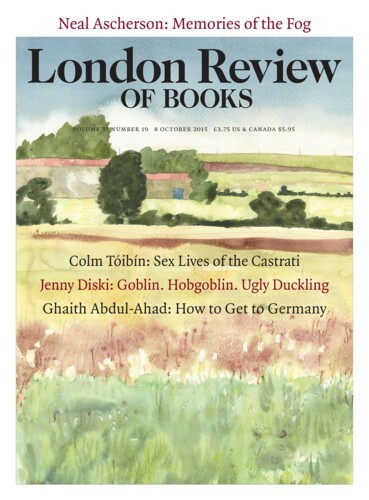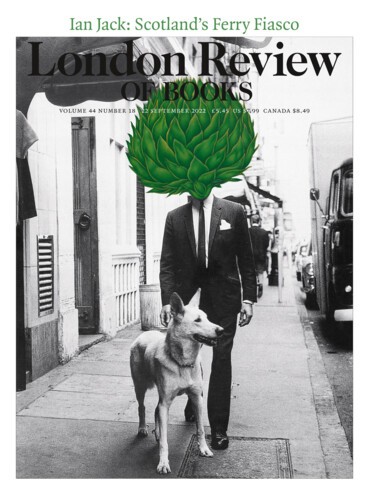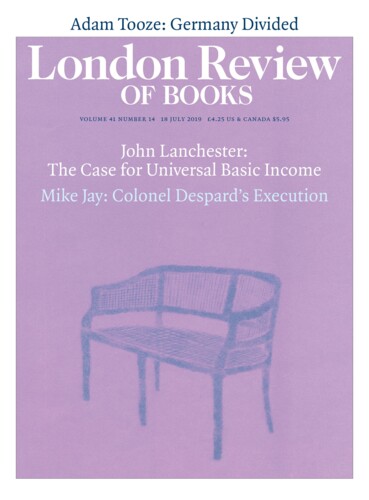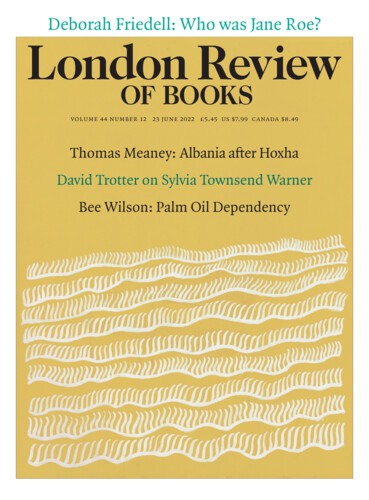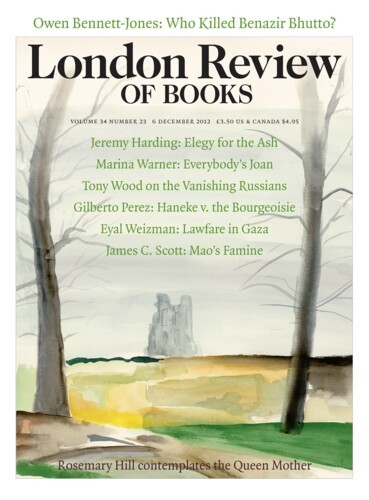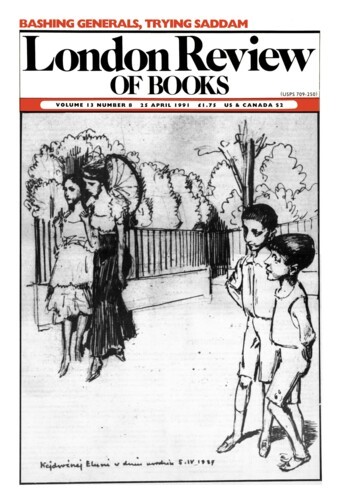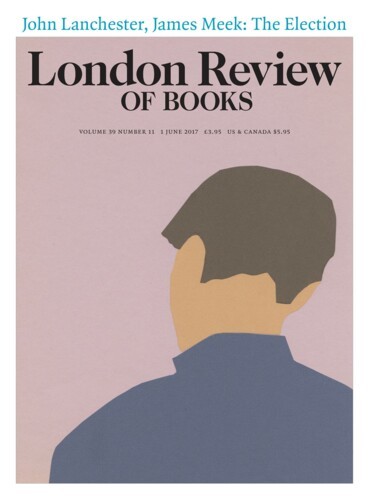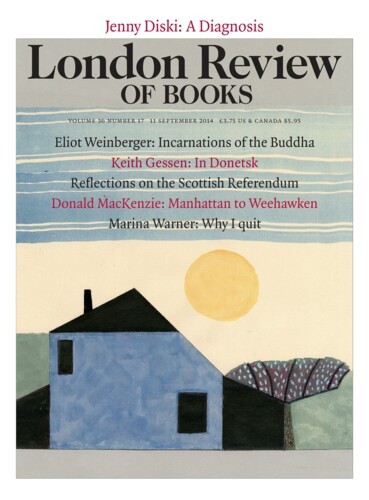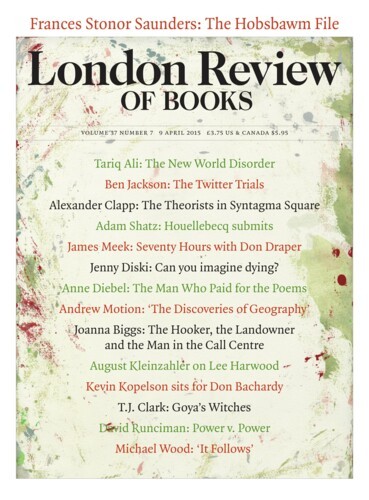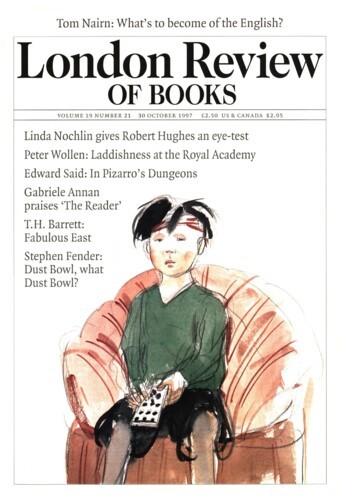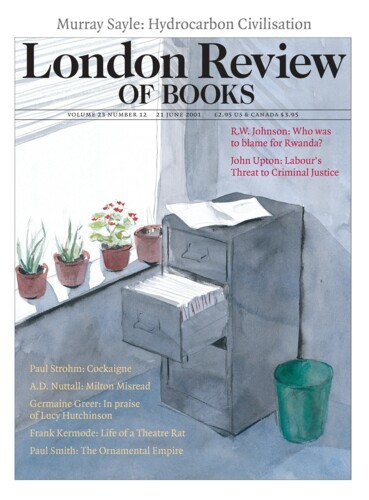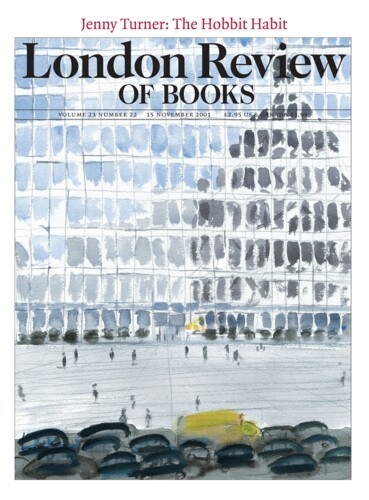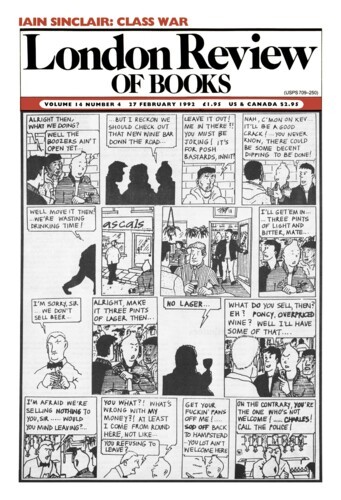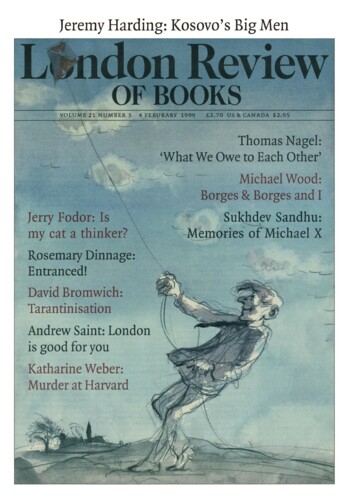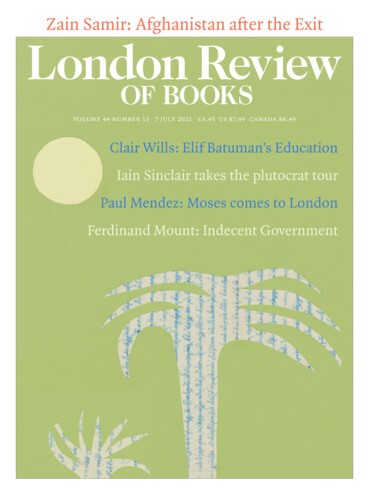Brown Goo like Marmite: Memories of the Fog
Neal Ascherson, 8 October 2015
Children in Bow had to sleep in their classrooms. Thousands of empty cars were left blocking the North Circular. The Duchess of Kent was unable to reach her flight at Stansted; the prime minister failed to get to a dinner at the Savoy. A monkey got lost in Oxford Street, and a Slavonian grebe – trying to migrate without sight of ground or stars – made a forced landing in Regent Street. At Richmond, a man cycled into the river.
